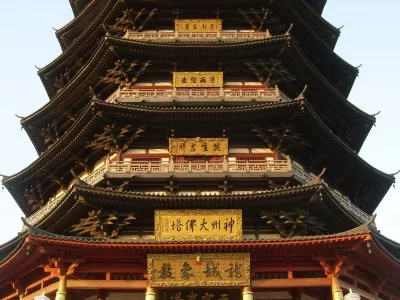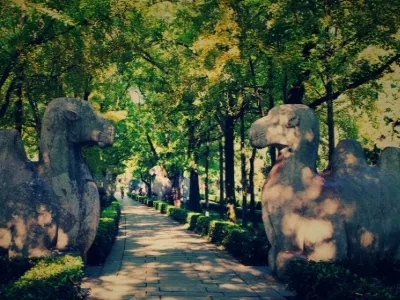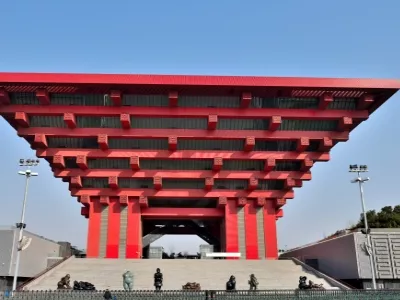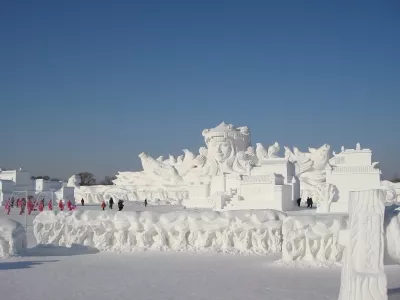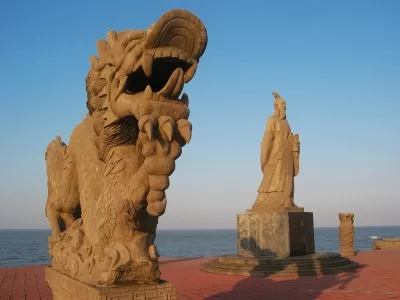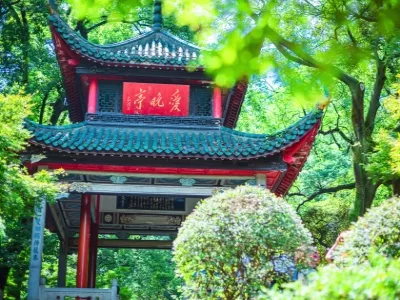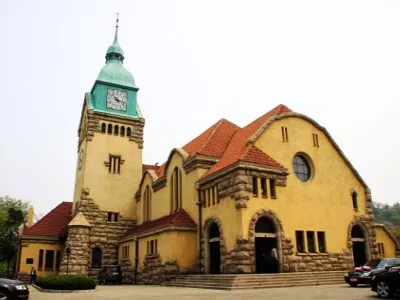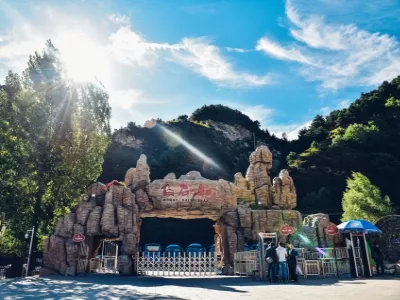Built among canals, Suzhou's streets parallel rivers with waterways interlacing the city. Structures face waterfronts, forming a charming landscape of "bridges, flowing water, and houses." This ancient capital blends exquisite gardens and sublime waterscapes. Suzhou gardens are practically synonymous with the city. Visiting renowned ones like Humble Administrator's Garden and Lingering Garden is a must.
Beyond the city, Taihu Lake's beauty and Jiangnan water towns add liveliness with their southern charm. Stroll Pingjiang Road or Qi Li Mountain Dike to savor the serene, old-world atmosphere. For tantalizing local flavors, head to Guanqian Street and Eunuch's Alley, where culinary delights will make your taste buds tingle. With picturesque canals, unparalleled gardens, and mouthwatering cuisine, Suzhou is a sensory feast for the eyes, mind and palate.
Best Travel Time
Suzhou is suitable for travel throughout the four seasons, especially in spring. Suzhou gardens are full of blooming flowers throughout the four seasons, shaded by lush green trees, or wrapped in silver, showcasing a myriad of beauty. In the warm and pleasant spring, whether it is the brilliant spring light or the lingering spring rain, over 100 gardens of all sizes have awakened and revitalized everything. In February, the "Fragrant Snow Sea" in Guangfu Ancient Town is as powerful as the snow sea, with a intoxicating aroma. From April to October, you can enjoy the natural scenery of peach blossoms and willow greens. Fresh peaches, Biluochun, sugar lotus roots, bayberries, loquats, hairy crabs, and pickled duck fresh fruits will be available in turns, which is enough to satisfy your appetite while enjoying your eyes.History
Suzhou was founded over 2,500 years ago in 514 BCE when King Helü of Wu commanded exiled Chu general Wu Zixu to build Helü City, now known as Suzhou. During the Spring and Autumn period, it served as the capital of Wu state and the birthplace of Wu culture, as evidenced by historical sites related to Xi Shi and Wu Zixu.
In 589 CE during the Sui Dynasty, it was officially named Suzhou, the name it retains today. When the Southern Song dynasty established itself in Jiangnan, Fan Chengda's Records of Wu Commandery declared: "It is said, heaven above, Suzhou and Hangzhou below. Also, when Suzhou and Lake Tai are abundant, all under heaven have plenty."
During the Song, Yuan, Ming and Qing dynasties, the Suzhou region was vital for supplying grain taxes, more than any other region. It was also a center of culture, with renowned gardens. Many surviving gardens were built by scholars and aristocrats during the Ming and Qing eras.
Airport shuttle bus
Suzhou does not have its own commercial airport. Travelers usually fly into Shanghai Hongqiao Airport, Shanghai Pudong Airport, or Wuxi Shuofang Airport in nearby Jiangsu province. Frequent long-distance bus services run between Suzhou and the Shanghai airports:
Suzhou to Shanghai Airports:
Buses depart from Ganjiang West Road and Suzhou Industrial Park stations. Arrive at Terminals 1 and 2 at Pudong and the long-distance bus station at Hongqiao.
First bus from Suzhou: 6:20am
Last bus to Pudong: 9:50pm
Last bus to Hongqiao: 21:00
Fares:
Suzhou to Pudong: ¥84
Suzhou to Hongqiao: ¥53
Shanghai Airports to Suzhou:
Buses depart from airport terminals and arrive at Ganjiang West Road and Suzhou Industrial Park stations.
First bus from Pudong: 10:00am
Last bus from Pudong: 20:00
First bus from Hongqiao: 11:10am
Last bus from Hongqiao: 21:30
Suzhou to Wuxi Shuofang Airport:
Buses depart from Suzhou Urban Airport Lounge (100 Daoqian Jie) and arrive at Shuofang Airport exit.
Fare: ¥30
Duration: 40-50 minutes
First bus: 6:00am
Last bus: 17:20pm
With frequent schedules, the airport shuttle buses provide a convenient transport option for reaching Suzhou from Shanghai's air hubs or nearby Wuxi Airport.
Network
Here is a suggested paragraph about internet access in Yichun for an English travel website:Getting Online in YichunMost decent hotels and resorts in Yichun provide Wi-Fi access, making getting online convenient for travelers. However, connection quality can vary. Major chain hotels often have the most reliable Wi-Fi that extends to guest rooms, restaurants, and public spaces. Smaller local hotels may only have lobby Wi-Fi that can be spotty.Before booking, check with your hotel to confirm they have Wi-Fi and ask about the strength of the connection. Look for properties with solid Wi-Fi coverage indicated in reviews. Avoid hotels with many complaints about slow internet.With Wi-Fi at hotels, travelers to Yichun can easily access the internet as needed to get travel information, stay in touch, and share trip experiences. Just be prepared that the network strength may not be as fast or robust as you’re used to at home. Being flexible with expectations will ensure you can still stay connected during your visit.Medical treatment
Here is a suggested paragraph about safety tips in Changhua, Taiwan for an English travel website:Staying Safe in Changhua, TaiwanChanghua is generally very safe, but you should take some basic precautions. Keep valuables secured and be alert in public areas to prevent petty theft. A special note for Southern Taiwan including Kaohsiung, Tainan, and Kenting - avoid discussing politics as tensions can run high in this region. However, southerners are usually still very warm and friendly, even towards mainland Chinese tourists.Use common sense, take care of belongings, and avoid political conversations in the south. Following basic safety measures will allow you to fully enjoy your travels in Changhua and the rest of Taiwan.Tourism consulting
When at crowded places like train stations, bus terminals, and metro stations, keep a close eye on your belongings to prevent theft. Areas with high tourist traffic like Tiananmen Square also attract scammers, so tourists should be wary of unlicensed guides demanding money upfront. Avoid handing over any cash to solicitations on the street. Use registered taxi companies like the red Beijing taxis whenever possible. Keep valuables secured and hidden, avoid carrying large amounts of cash, and be alert in public transportation hubs and tourist sites. When needing assistance, go to authorized help points like the Beijing Tourist Information booths rather than individuals roaming the streets. Beijing is a generally safe city if simple precautions are taken. Report any incidents or suspicious activities immediately to the nearest police officer. They can also provide directions and other help. Enjoy sightseeing, but remain aware of the surroundings.




